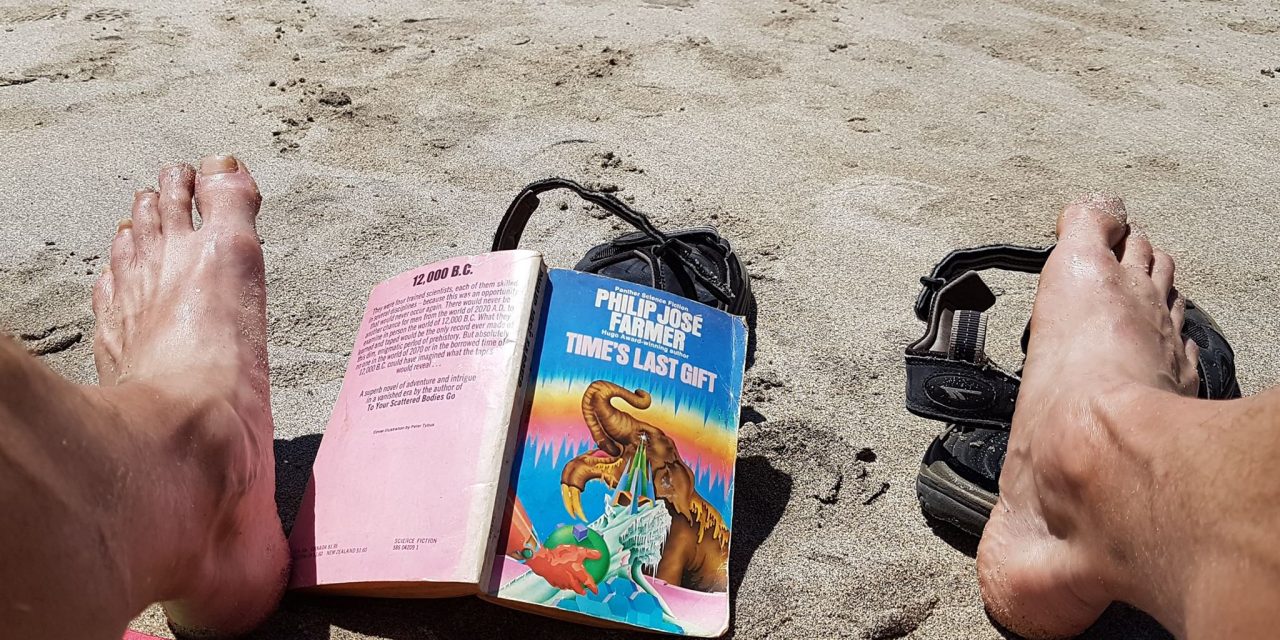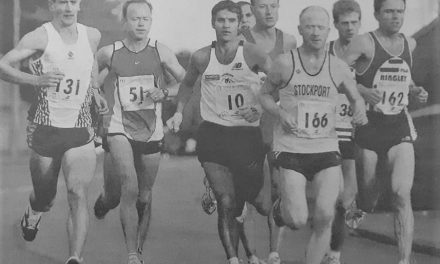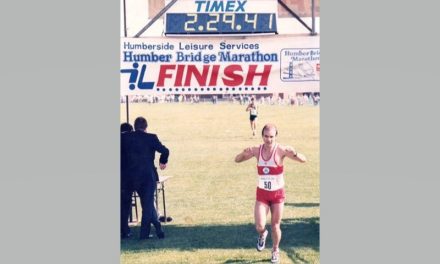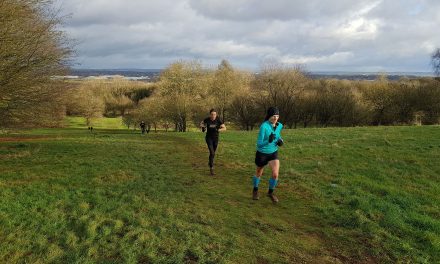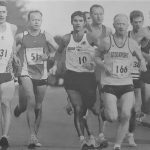It is natural for most runners to panic when they need time off from running, whatever the cause of that break. This is even more the case if they are preparing for a goal event that a break in training interferes with, but even applies to holidays and other planned breaks. That panic manifests itself in trying to avoid taking even a short break because of a niggling injury or cold, and also a subsequent rush to get back into full training more quickly than you are ready for, often leading to another break-down.
However in many cases taking a prompt rest from running actually speeds up the recovery and boosts your fitness. And if you are off for a longer period it is important to know the body has an amazing natural ability to get back into shape quickly, and that is enhanced by a managed return to training.
In general terms aerobic endurance and capacity take a long time to develop but also take a long time to lose. After all aerobic level endurance running is what we evolved to do best. Even if you are almost completely out of action for a long time you will retain the ability to run long distances very slowly. And fortunately over longer periods a drop in aerobic fitness can be largely mitigated through the use of other lower impact activities such as walking, cycling and/or swimming if the type of injury allows the activity.
On the other hand specific running economy, particularly required for events requiring a sustained pace closer to your maximum, will deteriorate much faster. This is because this is largely based on technique and muscle strength which needs specific running practice and activity to maintain at high levels. When you struggle for breath after some time out it is not because your aerobic system has deteriorated that much, it is because you have become a less efficient runner mechanically.
Fortunately from my experience, as long as a break has not been too long, a return to even light running helps technique and muscle strength to return much more quickly and with less effort than they took to gain in the first place because the body is no longer in a state of perpetual fatigue from hard training. This is why so many runners perform surprisingly well after a short period back following a break of weeks or even months, even if they have not repeated all their previous training sessions and volume.
You should always ease back into training with short easy runs for a period before you attempt more intensive and / or extensive running. The more time you have off the longer this easy running period needs to be. I would recommend easy running for at least half the amount of time you have been off before returning to normal training.
With longer periods off the most important limiter on a return to previous performance level is additional weight. This has more direct impact on top end performance than almost anything else. Although you can control calorie intake (and may still need to if you have suddenly dropped from a very high training load) the ideal way to combine the task of keeping weight down whilst maintaining your aerobic fitness is to undertake some form of low impact cross-training such as cycling or swimming if the injury will allow.
With cross-training in my opinion it is important that you aim for aerobic maintenance rather than treat your time off as a personal attempt to become a champion cyclist or swimmer. The harder you push these alternative activities the more quickly your body (and mind) will become adapted to them, and this may in turn become a resistance factor to getting your running technique working smoothly again when you restart running. Recently an athlete of mine did a hard block of cycling whilst injured for a few weeks. with a considerable amount of faster riding which might have been expected to boost his aerobic fitness overall. However when he returned back to running he was out of breath on an easy run.
It is also worth bearing in mind that if the break in training has been caused by a need to resolve severe over-training, a return to high intensity and / or high volume cross training is unlikely to improve that situation.
Another important factor to consider is that over longer periods the body’s weight bearing strength and endurance and particularly impact resistance is reduced, and even with specific strengthening for the injury, too fast a return to previous running volume and intensity results in repeated injuries or breakdowns elsewhere, further delaying your full return. From my experience if you have had a more than a few months off as a runner it is worth using walking and hiking (time on feet) for a period to rebuild these core strengths as well as gym based work before starting to run again.
Gym based strengthening work is very popular these days and specific exercises for runners definitely have their place in strengthening weakened muscles and improving performance. However during a break from running, as with aerobic endurance focused cross training, it is essential to avoid trying to become a dedicated weight lifter, body builder or cross-fitter by hitting these exciting new activities hard. These activities and others are all as addictive as running and can quickly develop changes in your musculature (as well as add mass) which may also increase the amount of time it will take to get your running economy back.
More detailed guidance depending on the duration of the training break:
If you have a break from running that is due to a major injury or illness you should always take the advice of the appropriate professional as to how and when you should return to running.
1-2 days: If no more frequent than weekly, 1-2 day breaks will almost certainly be completely beneficial. Most runners who are training hard should consider a day of rest from running every week anyway.
3-6 days: This is the most common period of unplanned rest, usually due to temporary fatigue, an injury niggle or a minor virus like the common cold. In most cases 3 or 4 short easy runs on your return will get rid of the initial rustiness and bring you right back to where you were before the break but with fresh legs, and you should be able to start training normally again with a spring in your step.
Always take extra care with returning to intensive training, long runs or races after a virus, no matter how minor it seems. An extra few days easy running will do you no harm and will help you to recover faster.
With a break this short there are no real extra benefits from an immediate shift across to cross training, (although you may feel you mentally need to do something) and a complete rest up to a week may actually do you good if you have been training extremely hard.
2-4 weeks: With this length of time you start to notice some deterioration in your running economy and aerobic capacity particularly over higher intensity/speed events such as middle distance track, cross country, and road races. Bringing in aerobic cross-training after 10 days or so will help you to maintain your aerobic fitness and also keep your weight down but as previously mentioned try to avoid higher intensity work on these new activities.
When you return to running you will probably feel terrible for the first few easy runs, but after a few days of easy running followed by training normally again for around half of the time you have been off, you will be back to almost where you were before the break.
3-6 months: A reduction in running economy specific conditioning and aerobic capacity really starts to bite with this length of time off, and progressively extends the return period. Even with the early introduction of aerobic cross-training, to get back to previous performance levels it is worth planning a week of easy running for every month you have had off, before training normally for half the time you have had off.
It is worth noting however in the case of longer slower endurance events such as ultra-trail races a long off-season of 4-6 months of an alternate aerobic endurance activity such as cross country skiing and / or cycling combined with a very small amount of running may actually offer additional benefits over trying to maintain a year round running programme. This is because the training and particularly racing breaks your body down so much that you need the time almost completely off running to recover, but you benefit from high volume aerobic cross training at the same time. The conversion back to running will be relatively quick because the relatively slower off-road running technique and economy is closer to our underlying evolutionary capability.
6+ months: Longer time periods may require a more complete training level reset to a timescale dependent on the runner’s previous development experience, but the critical points remain the maintenance of pre-break body weight and aerobic fitness using cross training followed by a focus on strengthening weight bearing muscles first through walking and then easy running before normal training recommences.
Years & decades: The return of older former athletes to high levels of training and competitive racing is particularly challenging and all the points raised above become even more important. Many returning runners are desperate to return quickly to their old pace and volume and most suffer multiple over-use injuries before their body has adapted again. Put a rucksack on your back with 10kgs in it when you are young and fit and see much you can do before injuring yourself, let alone when you have not done anything for many years and are carrying that much or more extra mass under your skin!
A lot depends on the amount of physical activity (if not running) that has been maintained in the intervening years but again it makes sense to focus on low intensity aerobic cross training combined with a reduction in body weight by calorie control if needed initially, and then by increasing time on feet with walking to build weight bearing strength and endurance, before returning to easy running and finally more seriously intensive and extensive running and strength training after that.
If you have a question or need additional advice, or you want to give me feedback on how this advice worked (or didn’t) work for you, please don’t hesitate to contact me
All content in this article copyright of High Performance Runner 2019

